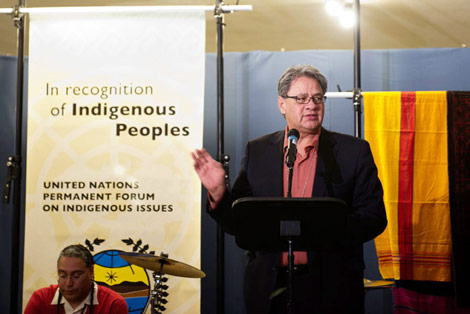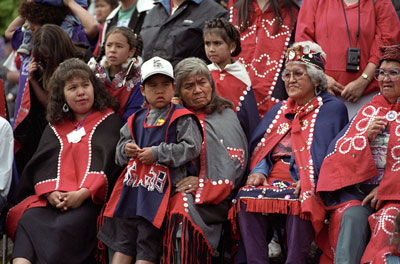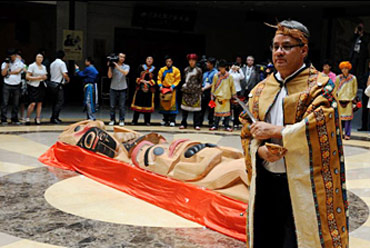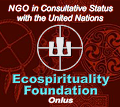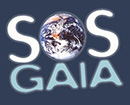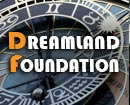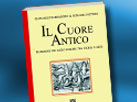| English Page |
The Role of Language and Culture in the identity of Indigenous peoples |
 |
 |
| 16 August 2012 | ||||||
Intervention on the Study on the role of languages and culture in the promotion and protection of the rights and identity of Indigenous peoples
Thank you to the United Nations Human Rights Council for resolution 18/8 authorizing the Expert Mechanism on the Rights of Indigenous Peoples (EMRIP) to prepare this report on Indigenous languages and cultures to promote and protect the rights of Indigenous peoples and for keeping this critical issue alive. The study is comprehensive in its analysis and conclusions. The advice in Advice No. 3 (2012), with the substantive and constructive comments from delegations need to be considered, supported and acted on. The required and necessary political will and concrete actions are important next steps to ensure Indigenous languages, and thereby their cultures survive and thrive. I am encouraged by the many positive interventions on this important issue but concerned deeply where Indigenous languages are not supported in any significant way and are in peril of being lost forever. As the report clearly articulates languages are an important underpinning and expression of indigenous peoples’ right to self-determination and is essential to facilitate the practice of their self-determination. Forgive me as I reference some of these issue from a very personal perspective. In Canada and the US there were deliberate attempts to undermine Indigenous languages, cultures and the exercise of self determination. In Canada for example the State introduced unconscionable and deliberate policies, practices and institutions to "kill the Indian in the child". Residential schools built all across Canada and operated by various church denominations, now the subject of a national Truth and Reconciliation Commission, took Indigenous children away from their families, communities, cultures and languages to civilize and assimilate them. Meanwhile, other initiatives were instituted to take the lands, territories and resources from Indigenous peoples. Indigenous governing authorities and systems were systematically replaced, through the Indian Act, with governing systems over which the State had legislative control. In addition these laws also determined who was, and who was not an "Indian"-an imposed legal status. Taken together these and other supporting efforts were designed to implement the so called "doctrine of discovery". We, the Indigenous children in these Indian residential schools were to be the instruments of State policy... that through us, our languages, cultures and even entire peoples with distinct cultures and ways of life were to die. The net result now is many of our Indigenous languages are struggling to survive. Some are extinct already. When the government of Canada apologized for their actions, after lengthy and time consuming litigation to determine liabilities, very limited financial resources were set up by the State for indigenous communities to repair and rebuild the language bases.
Without our languages how will we truly know our ways? our histories? our beliefs? our lands? each other? our Creator? For many Indigenous peoples our lands are a central part of our identity, of who we are. If the assimilationist policies are completely realized and we are without our languages we will have become mere shadows of our ancestors. Language is the essence of our cultures, and to our survival, dignity and well being as Indigenous peoples. As children we learned and lived our languages and cultures as a day to day part of family and community. Of course as children we did not know this but it was a significant process to learn from our parents, grandparents and many others in our communities. We, in our respective generations, now have these responsibilities. Article 25 of the UN Declaration on the Rights of Indigenous Peoples recognizes this. "Indigenous peoples have the right to maintain their distinctive spiritual relationships with their...lands, territories, waters and coastal seas and other resources and to uphold their responsibilities to future generations...". Despite the significant hurdles and challenges we have to do what we can. There is time. There is hope which we cannot ever abandon. We have to believe and be confident in ourselves and who we are. The study outlines international and regional standards on indigenous peoples’ rights to language and culture. Language rights, as part of cultural rights, where they are inadequately recognized or supported must become important State public policy priorities. This is noted in a very strong way in paragraph 46 of the study. Where they have been neglected they must be reflected and supported through national legislation and policy and must be included, as human rights in human rights implementation processes. These rights to languages, as part of cultural rights, are integral elements of the right to self-determination and should be viewed within the context of the universal, interdependent and complementary nature of human rights. At its tenth session, the Permanent Forum acknowledged the Secretary-General’s warning that an indigenous language dies every two weeks, expresses its critical concern about this dire situation and, as a part of its review, has appointed (myself) Edward John to follow up with UNESCO and UNICEF, other United Nations agencies and programmes and States, to consider developments that will ensure the ongoing survival and revitalization of indigenous languages. In 2008, the International Year of Languages, the Permanent Forum held an expert group meeting on indigenous languages and this report can be found on the Permanent Forum’s website. Like the EMRIP Study, it was found that indigenous peoples and their languages are threatened around the world. The loss of indigenous languages signifies not only the loss of traditional knowledge but also the loss of cultural diversity and spirituality. Dire as this situation is, there is a lack of awareness on the part of some Governments of the urgency for policy measures to reverse this trend.
Indigenous languages are treasures of vast traditional knowledge concerning ecological systems and processes and how to protect and use some of the most vulnerable and biologically diverse ecosystems in the world. It is no coincidence that the areas where indigenous peoples live are the areas that contain the greatest biological diversity. In fact, biological, linguistic and cultural diversity are inseparable and mutually reinforcing, so when an indigenous language is lost, so too is the traditional knowledge for how to maintain aspects of the world’s biological diversity. Language rights must be implemented as a collective and an individual right. There are some positive initiatives where the translation of relevant laws and important political texts into indigenous languages have occurred so that indigenous peoples can better participate in the political sphere. It is important to translate legal texts into indigenous languages and use them. It is also essential to include indigenous languages and cultures into early childhood care and education curriculum, and promote multilingualism. The prevailing situation in the world today is that certain languages are given official status and recognition, while the majority of languages, and, in particular, indigenous languages, are denied legal recognition. This deplorable imbalance weakens indigenous languages and contributes to views that portray indigenous languages as inferior and give room for discriminatory and corrupt practices that are difficult to combat through legal or political means. In closing, it is important to view indigenous languages not as a financial drain but as an incredibly valuable resource of which every State should express profound pride. Language diversity is a major contribution to the wealth of every country’s cultural heritage and as I said at the outset, there is a need for political will and concrete actions to provide the resources needed to preserve and develop this heritage, in particular Indigenous languages. It should also be stressed that the promotion of indigenous languages does not undermine national unity; on the contrary, alongside all other languages, it is a positive contribution to national heritage and identity. Grand Chief Edward John, Tl'azt'en Nation Chair Permanent Forum on Indigenous Issues Statement presented at the United Nations of Geneva Expert Mechanism on the Rights of Indigenous Peoples Fifth session, 9-13 July 2012 |

